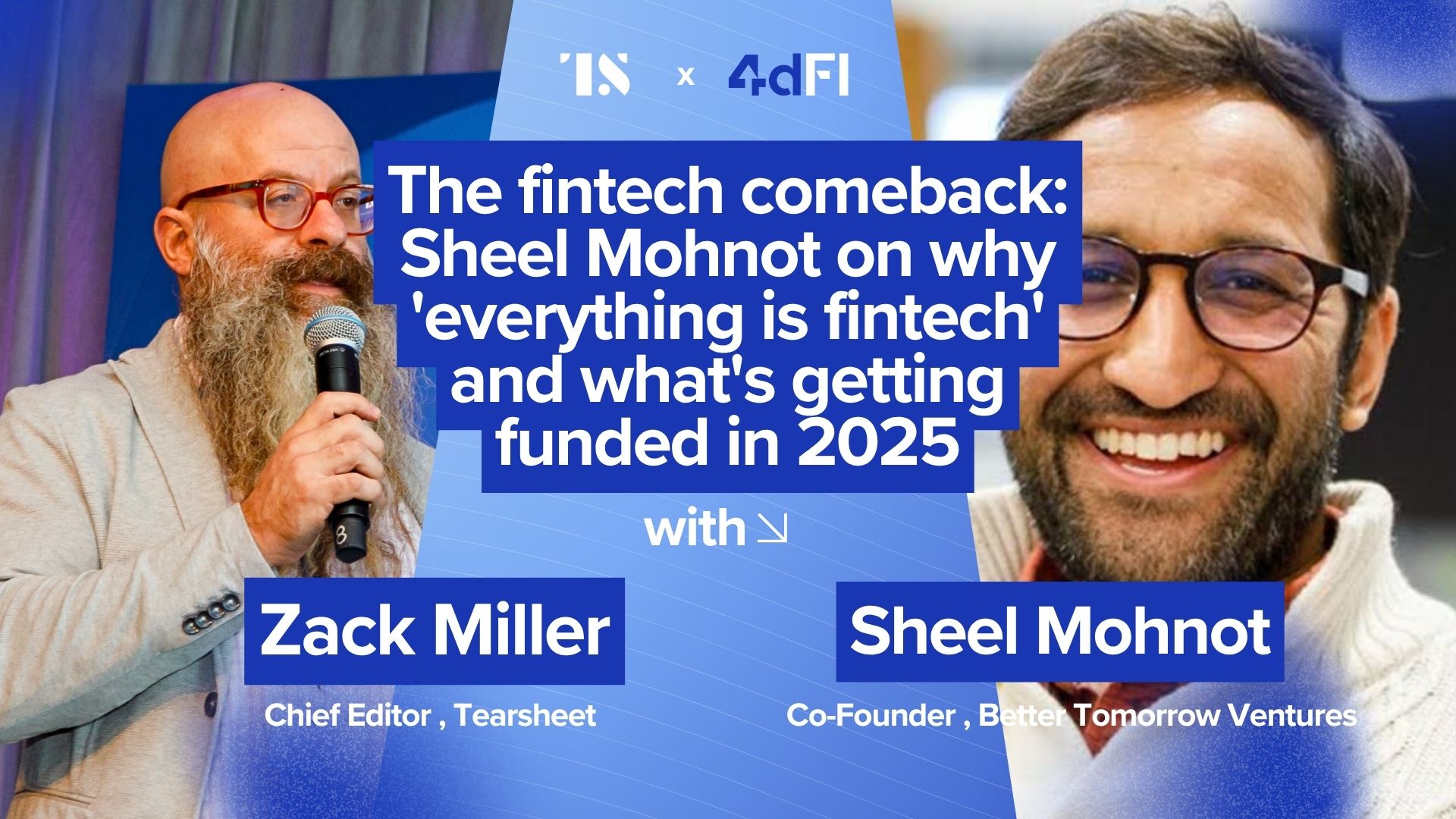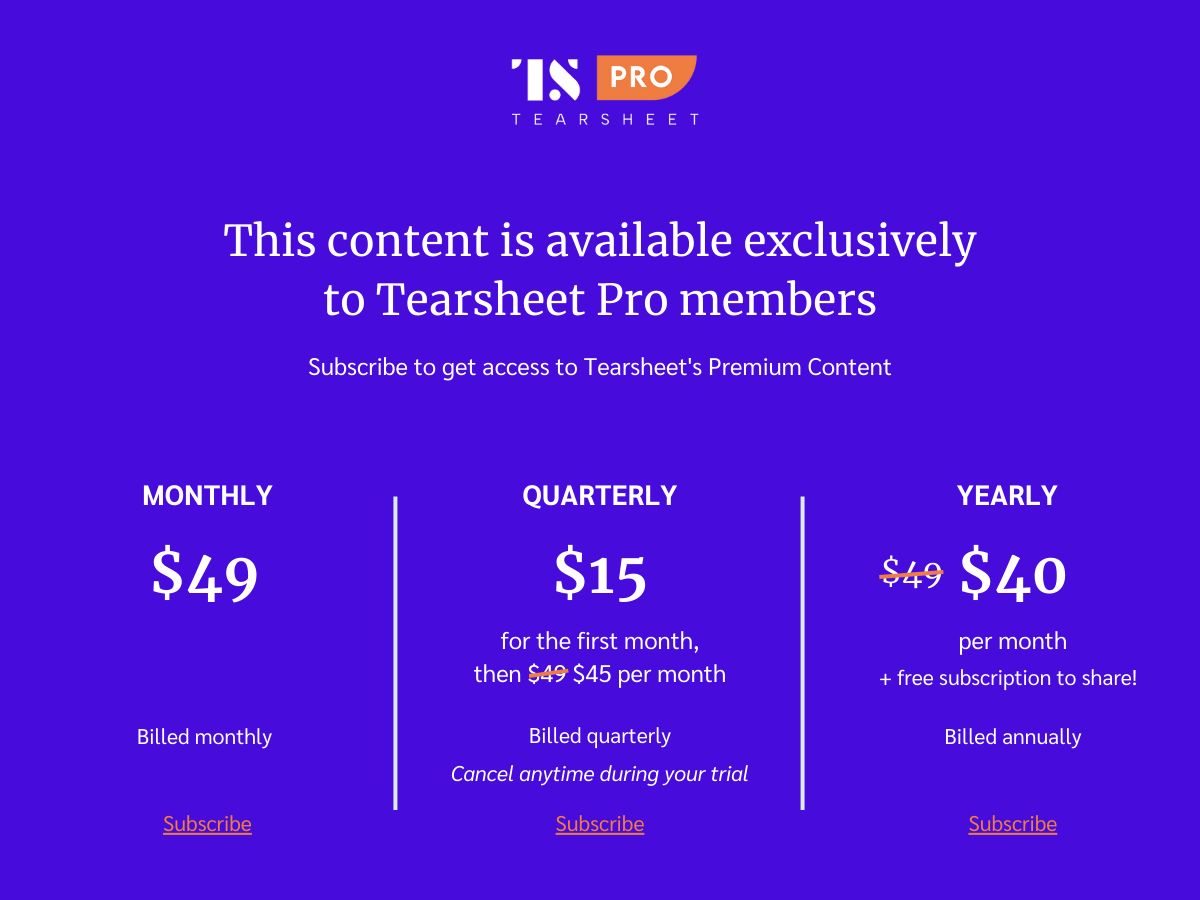The fintech comeback: Sheel Mohnot on why ‘everything is fintech’ and what’s getting funded in 2025
- The fintech investment landscape is heating up again after a challenging 2022-2023, with early-stage funding recovering.
- In this episode, Better Tomorrow Ventures co-founder Sheel Mohnot shares insights on the 'everything is fintech' trend and what's getting funded in 2025.

The fintech investment landscape is heating up again. After a challenging 2022 and 2023, early-stage funding is recovering, with companies focused on practical problems attracting serious investor interest. The shift is toward infrastructure, embedded finance, and AI applications that solve real workflow problems.
Sheel Mohnot has been tracking this evolution from multiple angles. As co-founder of Better Tomorrow Ventures, he’s raised $300 million across three funds focused on pre-seed and seed-stage fintech companies. His perspective comes from building and exiting—he founded FeeFighters, which sold to Groupon in 2012, and ran the fintech accelerator at 500 Startups.
BTV’s thesis centers on what Mohnot calls the “everything is fintech” trend — vertical SaaS companies that increasingly derive revenue from payments and financial services rather than software subscriptions. Toast exemplifies this shift, starting as restaurant point-of-sale software and now getting 83% of revenue from financial services.
Today, we’ll explore why Mohnot believes fintech is back, what types of companies are getting funded in 2025, and his view on AI in fintech — where it’s working and where it’s just hype.
Watch the episode
Listen to the episode
Subscribe: Apple Podcasts I SoundCloud I Spotify
The big ideas
1. Fintech’s Comeback After the 2022-2023 Crash
“2016 to 2021 was like a straight line upward towards the end it was like, literally vertical. And then it crashed pretty hard in 2022-2023… I would say, like, Q4 into Q1 of this year, they were back.”
The fintech investment cycle has dramatically shifted. After vertical growth through 2021, the crash in 2022-2023 saw generalist funds telling Mohnot they were “not doing FinTech anymore.” But Q4 2024 into Q1 2025 marked a strong return, with Q1 being BTV’s best quarter ever.
2. What Separates Successful Companies: Iteration and Tenacity
“I think it all comes down to a founder and their ability to iterate fast… Are they tenacious? Are they breaking through walls to make stuff happen?”
Mohnot has observed companies go from burning $8-9 million monthly to profitability in five to six months while continuing to grow. The key differentiator is founders who constantly churn out new features, talk to customers, listen to feedback, and iterate the product rapidly.
3. The “Everything is Fintech” Thesis in Action
“We can go by one that everybody knows, which is spend management and banking… then we have embedded… the nature of accounting is changing… AI services as software.”
BTV’s portfolio demonstrates the “everything is fintech” trend across four main themes: spend management (Ramp, Mercury, Coast, Mendel, Relay), embedded finance (Unit for banking, Salsa for payroll, Layer for accounting), accounting transformation (Basis, InScope), and AI-powered financial services (Atlas/Monk, Codge).
4. The Founder Experience Advantage in Early-Stage Investing
“Founders want to work with founders, and especially at the earliest stages… everyone on our team is a founder, operator.”
Better Tomorrow Ventures differentiates itself by having only founder-operators on the team. This gives them credibility with portfolio companies and a higher likelihood of winning deals, as fintech founders prefer working with investors who have been through similar challenges.



